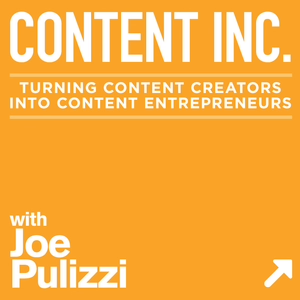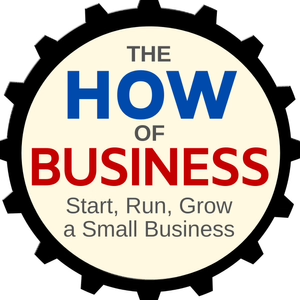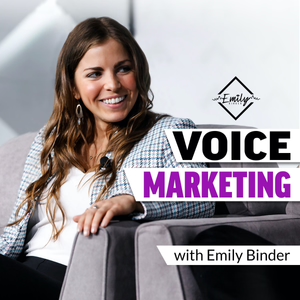
David Abrahamovitch | Grind: How to build a DTC brand
04/22/25 • 37 min
Building a direct-to-consumer (DTC) brand offers an incredible opportunity to connect with customers and foster long-term brand loyalty. But while the rewards can be significant, so too are the challenges and barriers to entry. That’s why I wanted to speak with someone who has successfully navigated this journey for our season focus on sales.
From modest beginnings in a Shoreditch coffee shop in 2011, David Abrahamovitch has built Grind into one of the UK’s leading DTC coffee brands. Having built a hugely loyal customer base, it’s estimated a Grind coffee is enjoyed every 2.8 seconds in the UK. David’s business has also grown through partnerships with the likes of British Airways & Soho House.
Keep listening to hear David’s advice on how to build a DTC brand & how to leverage community-building to generate sales.
David’s advice:
- Accept that everything is sales; sell to yourself constantly
- With every small sale you are building a following and a brand
- Pitching your product should not worry you; you know more than anyone else about it, so you have nothing to fear
- Always know your numbers; but also tell the story of the history of the brand, and your plans for its future
- Be optimistic - but not delusional!
- DTC is more work in that you have to have a website / attract people to that website / and deal with the packaging and the posting
- Whereas selling through a retailer you only need to advertise the product
- BUT DTC gives you access to customers’ data and allows you to build a relationship with them
- So selling through both the above is perhaps optimal
- Advertising is essential for DTC selling - Facebook / Instagram / email / tube car panels are all useful; expect to spend up to 30% of revenue on marketing which will be a constant burden
- Retaining customers is everything; the product must be a good one
- If customers unsubscribe, find out why so that you can fix the problem
- Use AI to help with small repetitive edits, not to replace people, just to speed up what they do
- In order to attract young talent, create a culture that they will understand and like; always be thoughtful with your team and make sure they understand their job, their position and the company mission
FF&M enables you to own your own PR & produces podcasts.
Recorded, edited & published by Juliet Fallowfield, 2024 MD & Founder of PR & Communications consultancy for startups Fallow, Field & Mason. Email us at [email protected] or DM us on instagram @fallowfieldmason.
FF&M recommends:
- Buzzsprout podcast 'how to' & hosting directory
- Canva has proved invaluable for creating all the social media assets and audio bites.
MUSIC CREDIT Funk Game Loop by Kevin MacLeod. Link & Licence
Building a direct-to-consumer (DTC) brand offers an incredible opportunity to connect with customers and foster long-term brand loyalty. But while the rewards can be significant, so too are the challenges and barriers to entry. That’s why I wanted to speak with someone who has successfully navigated this journey for our season focus on sales.
From modest beginnings in a Shoreditch coffee shop in 2011, David Abrahamovitch has built Grind into one of the UK’s leading DTC coffee brands. Having built a hugely loyal customer base, it’s estimated a Grind coffee is enjoyed every 2.8 seconds in the UK. David’s business has also grown through partnerships with the likes of British Airways & Soho House.
Keep listening to hear David’s advice on how to build a DTC brand & how to leverage community-building to generate sales.
David’s advice:
- Accept that everything is sales; sell to yourself constantly
- With every small sale you are building a following and a brand
- Pitching your product should not worry you; you know more than anyone else about it, so you have nothing to fear
- Always know your numbers; but also tell the story of the history of the brand, and your plans for its future
- Be optimistic - but not delusional!
- DTC is more work in that you have to have a website / attract people to that website / and deal with the packaging and the posting
- Whereas selling through a retailer you only need to advertise the product
- BUT DTC gives you access to customers’ data and allows you to build a relationship with them
- So selling through both the above is perhaps optimal
- Advertising is essential for DTC selling - Facebook / Instagram / email / tube car panels are all useful; expect to spend up to 30% of revenue on marketing which will be a constant burden
- Retaining customers is everything; the product must be a good one
- If customers unsubscribe, find out why so that you can fix the problem
- Use AI to help with small repetitive edits, not to replace people, just to speed up what they do
- In order to attract young talent, create a culture that they will understand and like; always be thoughtful with your team and make sure they understand their job, their position and the company mission
FF&M enables you to own your own PR & produces podcasts.
Recorded, edited & published by Juliet Fallowfield, 2024 MD & Founder of PR & Communications consultancy for startups Fallow, Field & Mason. Email us at [email protected] or DM us on instagram @fallowfieldmason.
FF&M recommends:
- Buzzsprout podcast 'how to' & hosting directory
- Canva has proved invaluable for creating all the social media assets and audio bites.
MUSIC CREDIT Funk Game Loop by Kevin MacLeod. Link & Licence
Previous Episode

Laura Harnett | Seep: How to make sales sustainably
PWC reports that over 80% of consumers are willing to pay higher prices for sustainably produced goods so environmental responsibility is clearly a lucrative business as well as being the right thing to do.
Laura Harnett is the Founder of Seep, the only B Corp-certified, plastic-free cleaning tool brand in Europe. Having raised a £50,000 Dragons’ Den investment from Trinny Woodall & Deborah Meaden, Laura & her team are on a mission to stop 1 billion plastic cleaning tools from entering landfill by 2030.
Keep listening to hear Laura’s advice on learning how to sell as a first-time founder & how to make your sales process as sustainable as possible.
Laura's advice:
- As a challenger brand, having spotted a gap in the market you will need to ensure you are confident about your supply chain, packaging, etc. before you approach retailers
- Selling direct to customers via a website is a great way to gain approval / test - and perfect - your product / do some market research
- When iterating products, try them out with your direct customers
- The evidence of your DTC sales enables you to approach big retailers with confidence
- Target your marketing emails carefully and thoughtfully
- Persevere with this; it can take time
- Facebook and Instagram ads are helpful
- You will find other founders provide you with advice and support
FF&M enables you to own your own PR & produces podcasts.
Recorded, edited & published by Juliet Fallowfield, 2023 MD & Founder of PR & Communications consultancy for startups Fallow, Field & Mason. Email us at [email protected] or DM us on instagram @fallowfieldmason.
FF&M recommends:
- LastPass the password-keeping site that syncs between devices.
- Google Workspace is brilliant for small businesses
- Buzzsprout podcast 'how to' & hosting directory
- Canva has proved invaluable for creating all the social media assets and audio bites.
MUSIC CREDIT Funk Game Loop by Kevin MacLeod. Link & Licence
Next Episode

Lucie Macleod | How to sell through viral social media: The Hair Syrup story
Welcome to How To Start Up, the podcast for anyone looking to start & scale their own business. I'm Juliet Fallowfield & today we’re discussing viral marketing with Lucie Macleod, founder of the TikTok sensation, Hair Syrup.
Founded in 2020 with no prior entrepreneurial experience, Lucie combined her understanding of consumer behavior with social media creativity, to turn a handmade hair oil into THE beauty must-have with over 350,000 engaged TikTok followers & rapid, 1,000% year-on-year growth.
After an appearance on BBC Dragon’s Den, the brand is now on track to hit £6.5 million in revenue by 2026.
To hear our next guest’s answer to Lucie’s question at the end of this ep, just click follow in your podcast directory of choice & you’ll receive a notification from us when it is ready for you to listen.
Lucie's advice:
- Don’t invest hugely to begin with; start cautiously
- Don’t build on ‘pinterest appeal’ with pretty packaging; functionality is what counts
- Believe in your product
- Stick at it when things get difficult; be dogged
- Tiktok can be good if you strike lucky
- Be very careful spending on advertising as you can lose a lot of money if you’re badly advised
- Also be very careful about the people you surround yourself with; if you wouldn’t be happy with a particular person being in your house, then don’t employ them in your business
- Trust trumps skill
- Learn to step away from your business and fully relax
FF&M enables you to own your own PR & produces podcasts.
Recorded, edited & published by Juliet Fallowfield, 2024 MD & Founder of PR & Communications consultancy for startups Fallow, Field & Mason. Email us at [email protected] or DM us on instagram @fallowfieldmason.
FF&M recommends:
- LastPass the password-keeping site that syncs between devices.
- Google Workspace is brilliant for small businesses
- Buzzsprout podcast 'how to' & hosting directory
- Canva has proved invaluable for creating all the social media assets and audio bites.
MUSIC CREDIT Funk Game Loop by Kevin MacLeod. Link & Licence
How To Start Up by FF&M - David Abrahamovitch | Grind: How to build a DTC brand
Transcript
Juliet: [00:00:00] Building a direct consumer brand offers an incredible opportunity to connect with customers and foster long-term brand loyalty. But while the rewards can be significant, so do are the challenges and barriers to entry. That's why I wanted to speak with someone who has successfully navigated this journey for our season focus on sales.
From Modest Beginnings in a shoreditch coffee shop in 2011, David Abramovich has built grind into one of the UK's leading
If you like this episode you’ll love
Episode Comments
Generate a badge
Get a badge for your website that links back to this episode
<a href="https://goodpods.com/podcasts/how-to-start-up-by-ff-and-m-154350/david-abrahamovitch-grind-how-to-build-a-dtc-brand-89790534"> <img src="https://storage.googleapis.com/goodpods-images-bucket/badges/generic-badge-1.svg" alt="listen to david abrahamovitch | grind: how to build a dtc brand on goodpods" style="width: 225px" /> </a>
Copy




